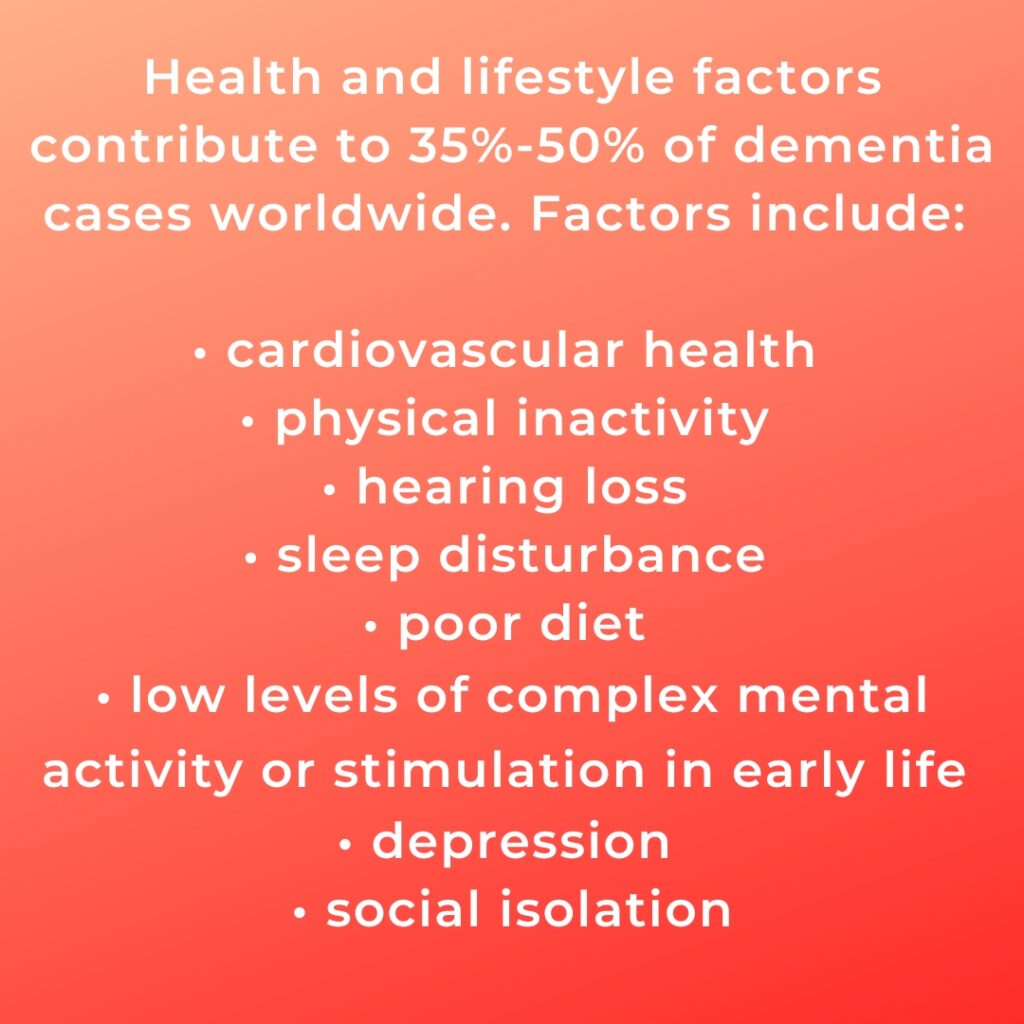Dementia impacts nearly 500,000 Australians, with the number expected to double over the next 25 years. Dementia refers to multiple illnesses including Alzheimer’s disease, Lewy body disease and vascular dementia. Dementia is underpinned by a progressive decline in functioning, including a reduction in, or loss of, memory, rationality, social skills and physical functioning. It impacts the lives of not only those living with dementia, but also family members and carers. There’s no current prevention or cure, however scientific research suggests a brain-healthy lifestyle can help reduce risk of developing dementia later in life. Brain health includes the way we move, our diet and other lifestyle factors help keep our brain healthy.
Tips for Reducing Your Risk
Getting older is the biggest risk factor for dementia, however there’s things you can do to help reduce your risk, such as:
- Exercise your brain with jigsaws, crosswords or number puzzles
- 30 minutes+ of physical activity every day
- Eat a variety of nutritious food and drink plenty of water
- Stay socially engaged and connected with friends and family
- Avoid smoking and excessive alcohol consumption
Research shows people who have high blood pressure, high cholesterol, diabetes, or are obese, particularly around middle age, have a greater risk of developing dementia later in life. So, be sure to have regular check-ups with your doctor and always follow the advice of your doctor.
Keeping Active
Physical exercise is essential for maintaining good blood flow to the brain and may encourage new brain cell growth and survival. Whilst research into this area is continuing, several studies found engaging in physical activity in early, mid and late life is associated with a lower risk of cognitive decline and dementia.

Speak to Nutrition NSW today for a one-on-one consultation with one of our Accredited Practising Dietitians to understand how nutrition can help reduce your dementia risk.





